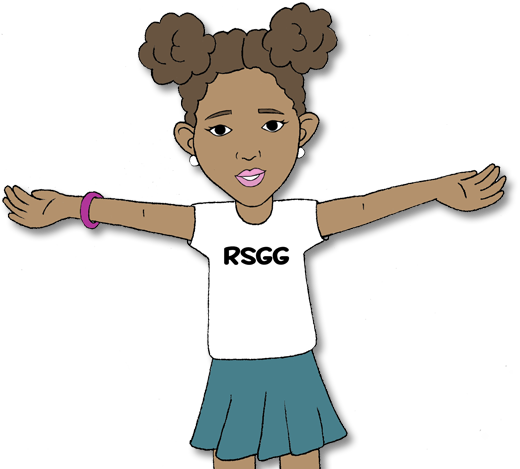Serious Stuff
Was anyone ever “ready” to have their first child?
John Martin was 17 years old. He wanted to be the best tuba player that ever came through his high school band. Then Chantelle Taylor informed him she was pregnant, and he was the father! John hyperventilated with those tuba-playing lungs and fell flat out on the floor!
Maybe you were a little more “ready” than John, but maybe not. At any rate, your child is here, and she has a mind of her own! You love your child. You want to guide her and take care of her. But it’s tough! Some days you wish you could just lay flat out on the floor and not even try. Some days you dread spending time with your child.
Everyone has those days. But if every day feels like that, something isn't working. You are not a bad person, but you are “stuck.” At some point, you became tired and overwhelmed. You haven’t been able to find your way back to a better place.
In this section, we look at six reasons why you may be “stuck.”
We will also take a look at what to do when you are ANGRY with your child.
First, here is a little assignment to start immediately.
Think of one good thing about your child; one simple thing that you enjoy about him or her. Write it down. Tomorrow, think of one more simple thing. If you can’t think of another thing, write the first thing down again. (Idea: Does your child have a cute smile when he is happy?) Do this every day for one month. You will begin to notice more sweet and nice things about your child! This is part of love.
Now, with that project started, here we go.
Number One: Do you feel chronically stressed and tired?
Along with being tired, do you worry that you aren’t doing a “good job” being a parent? Maybe you feel guilty that you should be doing “better.”
Most likely, you are not getting enough sleep! Almost certainly you are not, if you are a parent. But you have to get SOME sleep. You probably “need” about 7 hours a night, or more. You can probably function OK on 6 hours a night. But if you get less than that, you will not feel like yourself and you can’t cope well. Strive for regular sleep. But if necessary, ask for help from a relative, and catch up now and then. (that actually does help.) Make sleep a priority over unnecessary things, such as chatting on social media, and even over “worthwhile” things, such as volunteering or church.
Important: Depression will cause exactly the same symptoms as lack of sleep. With depression, a person doesn’t always feel sad. Feelings of guilt and repetitive thoughts of frustration are prominent symptoms of depression, along with feeling tired.
Anemia (“low iron” or “low blood”) can cause the same symptoms. ALL of these issues are common in parents of young children, and you might very well have all three! An appointment with your regular doctor may help! If you don’t have a doctor, ask your child’s pediatrician for a recommendation.
And by all means, keep in mind that you are just as good a parent as anyone else! April, in our story, used to feel like this all the time. She got to a better place, and so will you.
Number Two: Do you feel that your child’s behavior is out of control and nothing is working?
Most parents worry at times that their child is not progressing in the same way as other children. These worries need to be fully considered, because many children do have special needs. If your child is showing signs of developmental delay, or if you are concerned about autism, then evaluation and special services are available for you, starting from the birth of your child. These services are available nationwide, no matter where you live, from a program called “Child Find.” Your pediatrician should be able to advise you, but if not, call the Child Find number for your state or your local school system. (Find the number by typing the words “child find,” followed by the name of your county or city into the search box on your phone.)
In Phase Two, there will be a section called “Is My Child Hyperactive?” Most parents worry about ADHD, and this may be helpful.
But usually, if a child’s behavior is bad, the problem is NOT the child. The problem is the child’s environment. As a pediatrician, I often see parents who come in and want medication to “fix” the child. We have come to believe that somehow there must be a pill to fix everything. NOT SO!
Serious things may be wrong in the environment. Your child might be being abused; by the other parent, or some caretaker, or even some adult whom you trust, but who is actually a pedophile. If you suspect abuse, your pediatrician can help you. Of course, you may know abuse is happening, because you may be the one getting abused by a violent partner. Take a look at www.thehotline.org for ideas about what to do.
You may know that you are too hard on your child yourself. Since you are reading this, you are working on that! Keep working! Study the “technique” section every day, and double down on GENTLE and PRAISE. Keep reading, for more ideas on what might be wrong.
Number Three: Are you having difficulty with your partner?
Perhaps, as you are reading, you are thinking, “I would love to do all this stuff, but I don’t have control over my life to do it, because of my partner.” Or you are thinking, “I can do some of this, but my partner is not going to stop screaming and yelling and hitting.”
You are not alone. Many people are dealing with these seriously bad things. Problems such as spouse abuse and mental health issues occur commonly. You are not a worthless person if something like this is happening to you.
But here’s the thing. If you have children, this is all happening to them, too. Children are very resilient, but long-term exposure to these situations will cause harm. If your partner has ever hit you, you and your children are in danger. That is not normal or acceptable behavior. No matter what he says, this isn’t your fault. He won’t change, so YOU have to get yourself, and your children, out of danger. Focus on safety, gather your self-worth, and begin a plan to leave. You can get help and ideas from www.thehotline.org.
Number Four: Are you, or your partner, taking a lot of pain pills, or anxiety pills, or are you drinking too much alcohol? Are you smoking marijuana when you have responsibility for your children? Is either of you addicted to street drugs?
If so, you are not going to be able to be a good parent, and you need far more help than a website can give you. (If you are doing street drugs, then the only safe thing to do is to let someone else care for your children until you can see a doctor and rehab successfully.) But even with alcohol or prescription drugs, you will not be functioning well enough to be the type of parent you need to be! Get some help. Talk to a friend, a counselor, your doctor, your spiritual advisor if you have one ... but get some help! Your children’s future for years and even generations to come is hanging in the balance.
Number Five: Could you, the parent, have ADHD? Maybe that sounds like a really odd question. Aren’t we all more concerned that our CHILD may have ADHD? But adults have it too. Many people have had ADHD all their life and never knew it. Since ADHD is to some extent hereditary, the effect can snowball if both parent AND child have this condition.
If you are a parent, and you can’t concentrate or focus for any length of time, this is a difficulty for you and your family. Adult ADHD can lead to impulsive decisions and trouble dealing with anger. If you suspect that you have this problem, it’s not your fault, so don’t be embarrassed! Find a doctor and talk it over. Many adults are helped tremendously by a low dose of medication.
Number Six: Could you, or your partner, have a mental illness?
About 1% of people do have mental illness. If you are one of those, it’s not your fault. Most people can be helped with medication and can function well. However, without medication, a mentally ill person is a danger to their children. Talk to someone you trust. Go to www.nimh.nih.gov for information and help. Call your county mental health department. It’s so hard to reach out, but so important.
Finally, a very important question that applies to everyone: Does your child ever make you SO ANGRY that you worry you might hurt him or her?
Everyone gets angry. A main goal of READY-SET-GO GENTLY is to give you a plan so you are not angry as often. When you take that second to be “READY,” then you are the adult. YOU can think of something acceptable to do, no matter how obnoxious your child is acting.
But let’s say for some reason, you are to that terrible point, and you are losing it! First of all, no matter what you might do,DO NOT shake your child. Shaking can cause brain damage, and that’s not a theoretical thing. As a pediatrician, I have seen this. Do not hit your child or throw your child. You can cause broken bones or vital organ damage. I have seen this. Your own pediatrician has seen this.
Here is your plan, if you have to: Grab something and throw it, but NOT AT YOUR CHILD!!! If you are angry, it is amazing what type of hole even a small object can put in a wall, or how easy it is to break a window. Walls and windows can be fixed. So, throw a fork or a dish at one if you absolutely have to. The resulting damage will probably be sufficient to remind you, next time, to take some deep breaths and count to 50.
I actually recommend planning this strategy in advance, in case you ever need it. Figure out what you might throw, and where. It’s best to control anger with counting and deep breathing. But parenting is tough, and anyone can get to a point where you feel like you might just explode! Plan ahead. Don’t let YOUR CHILD be the one that is permanently damaged by anger.
Whatever your situation, you are a worthwhile person
You are a PARENT! Your child loves you with all her heart!
Don't give up on your child. Don't give up on yourself.
Find someone to talk to. Have courage and strength.
You are stronger than you realize!
Over the years, I have seen many people overcome tremendous difficulties for the sake of their children.

